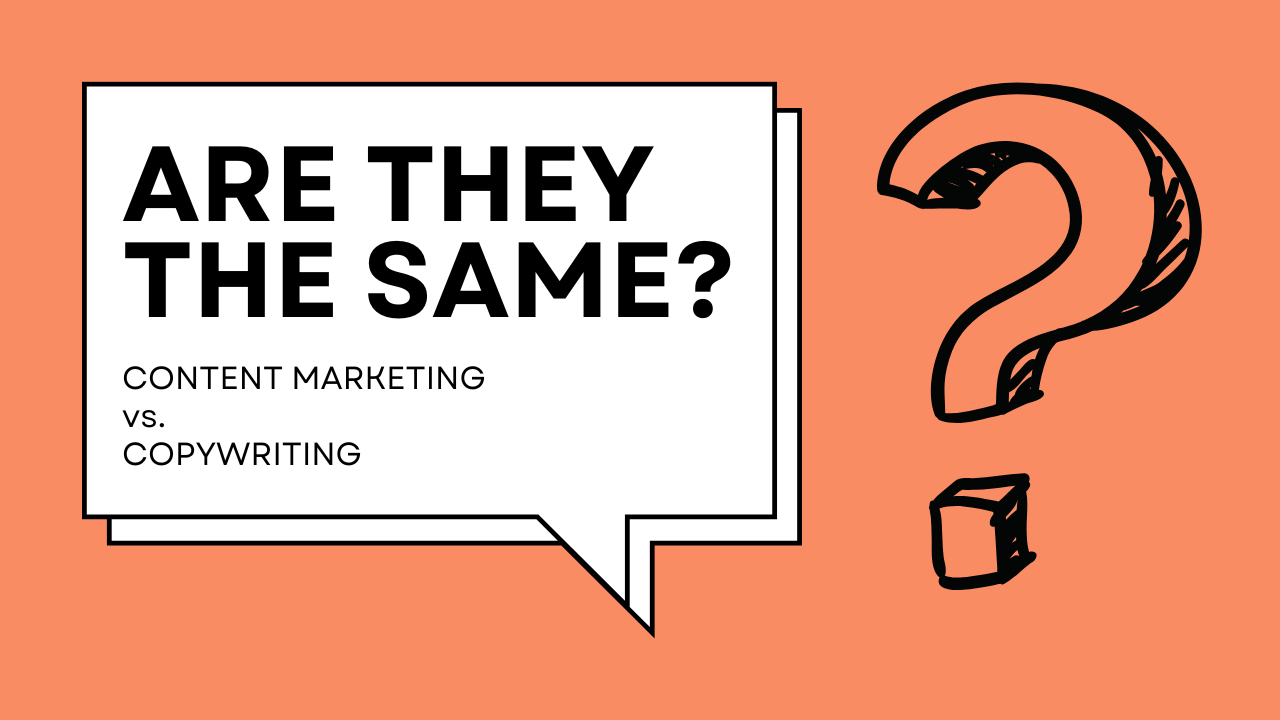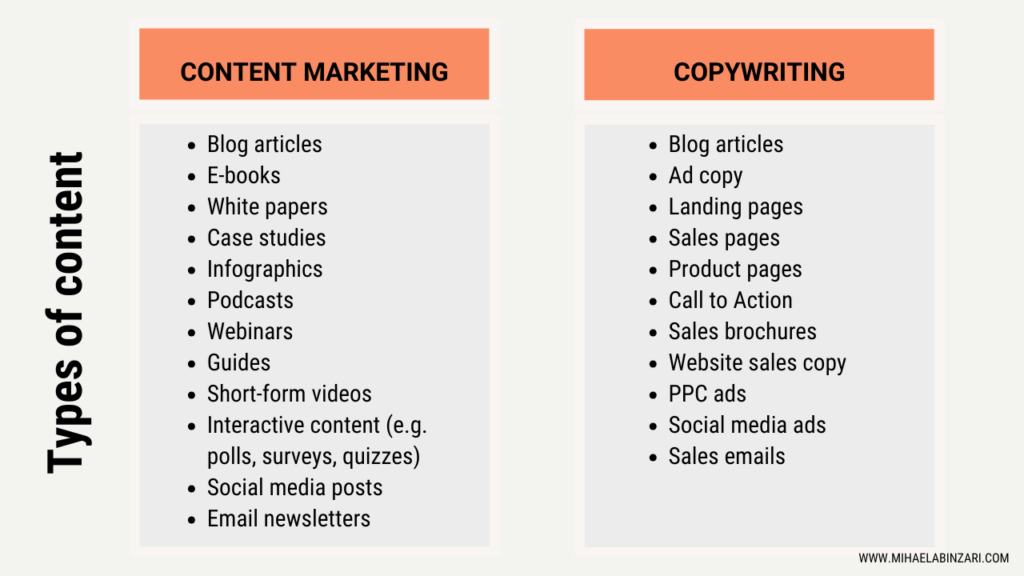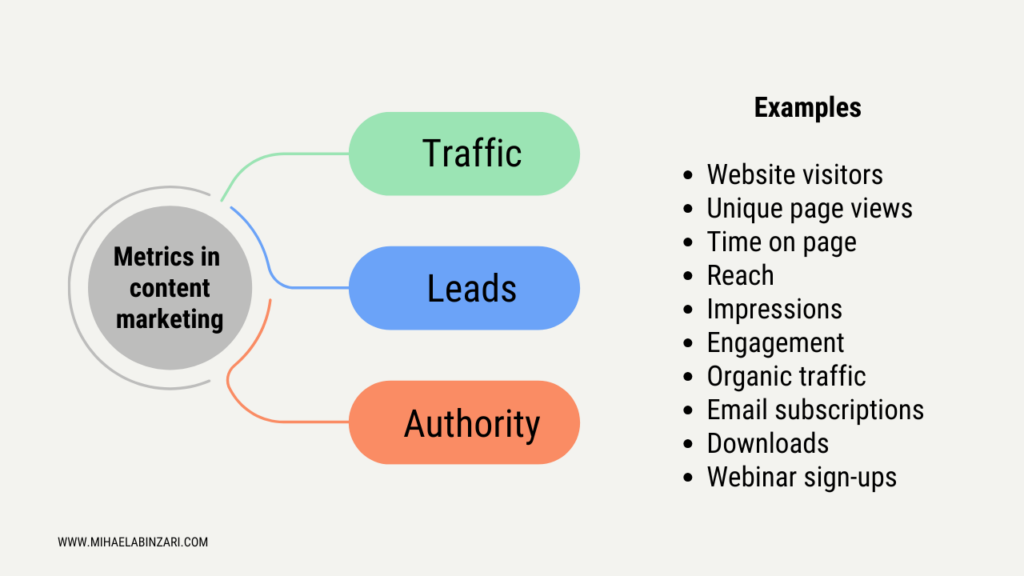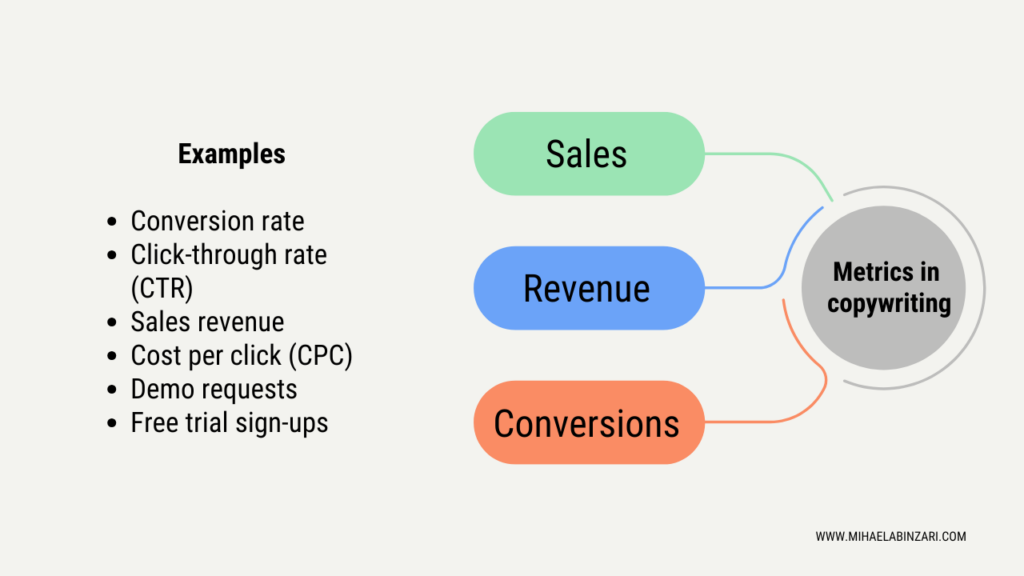Content Marketing vs. Copywriting: Are They The Same?

Content marketing and copywriting: aren’t they the same? If your answer to this question is “Yes”, then this article is here to help you see what actually sets them apart.
If you are a business, it’s especially important for you to understand the difference, know when to use one or the other and how to measure success for each.
What is Content Marketing?
In his book “Epic Content Marketing” (a must-read for content marketers, if you ask me), Joe Pulizzi defines content marketing as follows:
“Content marketing is the marketing and business process for creating and distributing valuable compelling content to attract, acquire, and engage a clearly defined and understood target audience—with the objective of driving profitable customer action.”
If I quote the same source:
“Content marketing is the art of communicating with your customers and prospects without selling”, considering that “Traditional marketing and advertising is telling the world you’re a rock star. Content marketing is showing the world you are one.”
Simply put, content marketing means creating content that is valuable and interesting for your audience while nurturing them. It implies using long-term strategies to build brand authority.
Through content marketing you engage with your audience by providing information that helps them solve their problems. Its main goal is to position you as a reliable and trustworthy brand your customers will turn to in the future, when making purchasing decisions.

What is copywriting?
Copywriting relies on using different forms of text to get your audience to take an immediate specific action. It is usually related to a sales goal, and its main objective is to persuade prospects to complete the necessary steps for the business sales process.
If content marketing focuses on the long term, copywriting is about the ‘here and now’. It encourages you to click a link, make a purchase, sign up for a service, request a demo etc.
The impact of copywriting materials ends together with the campaign they were created for, and it usually involves shorter forms of content (however long-form texts such as product descriptions, sales pages and emails are also part of copywriting materials).
Are content marketing and copywriting using the same type of content?
Since content marketing and copywriting have different purposes, the type of content you produce for each is different.
However, depending on your intent, some forms of content can be used for both content marketing and copywriting purposes:
- Blog articles can be educational (content marketing) or optimized for lead conversion (copywriting).
- Social media posts might educate, grow your brand awareness, engage (content marketing), or generate ad-driven direct responses (copywriting).
- Email newsletters are a powerful tool to nurture and educate contacts who have already interacted with your brand (content marketing), but they can also boost your sales campaigns (copywriting).

How do you measure results in copywriting and content marketing?
The truth is, content marketing metrics are harder to measure. They focus on engagement, education, and brand awareness, and for all of them you need a longer period of time to see results.
Content marketing efforts don’t immediately translate into conversions. It usually involves creating content for the long run—one of the main reasons many businesses are reserved in investing budgets, time, and effort in content marketing.
Metrics in content marketing usually focus on traffic, leads and authority.
Examples: website visitors, unique page views, time on page, reach, impressions, engagement, organic traffic, email subscriptions, downloads, webinar sign-ups.

Copywriting, on the other hand, because of the immediate action it requires, is easier to quantify.
Metrics in copywriting reflect sales, revenue, conversions.
Examples: conversion rate, click-through rate (CTR), sales revenue, cost per click (CPC), demo requests, free trial sign-ups.

Should you use copywriting or content marketing?
Your marketing strategy and plan should use both. With content marketing, you warm up your audience, nurture them, and build a strong relationship. You position yourself as the go-to brand for a specific problem and need. You answer their questions much before they are thinking about a purchase.
Because the truth is, and I’m going to quote Joe Pulizzi again:
“Your customers don’t care about you, your products, or your services. They care about themselves, their wants, and their needs. Content marketing is about creating interesting information your customers are passionate about so they actually pay attention to you.”
Content marketing sets the fundament for your copywriting efforts. If you are already there for your audience, the moment they need your product or service or when you launch a sales-oriented campaign, converting will be easier.
What about you? If you are evaluating your current marketing strategy and plan, do they include both content marketing and copywriting?
